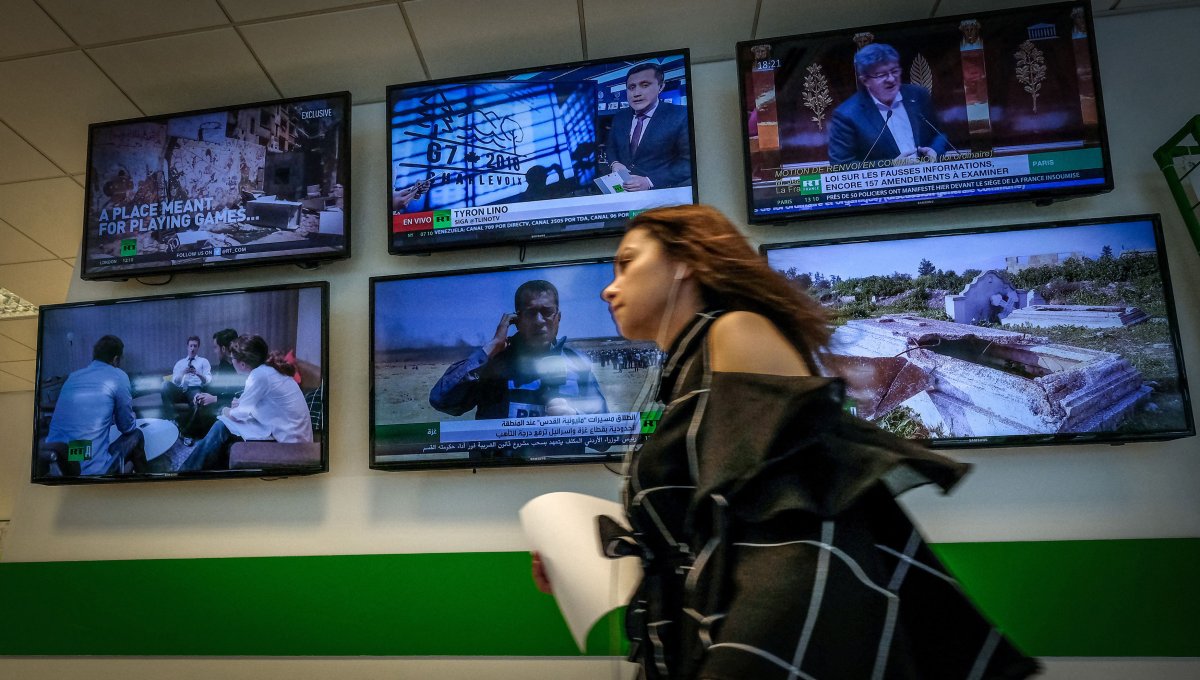Russian state TV commentators recently suggested that Russia should engage in military force with Turkey, Bulgaria and Romania, which are North Atlantic Treaty Organization (NATO) countries.
Kremlin leaders including Russian President Vladimir Putin have been rather silent since last week's NATO summit in Lithuania where member nations pledged a baseline of 2 percent GDP spending towards defense, as well as Ukraine's eventual admittance into the bloc.
While members' hesitance to Ukraine swiftly becoming a NATO member may be viewed as a victory for the Kremlin, Putin may have another problem in the form of a strained ally. Turkish President Recep Tayyip Erdoğan, prior to the most recent summit, dropped his objection to Sweden joining the alliance. Once the Scandinavian country eventually joins the bloc with Finland, NATO will be larger than it was before the Russia-Ukraine war. One of Russia's main reasons for invading Ukraine initially was due to NATO expansion.
"We're ready to go war with Turkey?" Russian propagandist Olga Skabeyeva asked fellow panelists on Russia-1, according to a translated video published to Twitter on Friday by Anton Gerashchenko, an adviser to Ukraine's minister of internal affairs. "There's also Erdoğan claiming the Black Sea."
Russian propagandist Skabeyeva has a discussion with another propagandist:
— Anton Gerashchenko (@Gerashchenko_en) July 21, 2023
"We are ready to wage war with Turkey. Erdogan claims the Black Sea."
"Olya, we won't go to war with Turkey."
"What about Bulgaria, Romania? We'll just hit them, maybe?"
"Olya, we have to finish in… pic.twitter.com/QxutY35Gt7
The Black Sea, which borders Ukraine, Russia, Georgia, Turkey, Bulgaria and Romania, has gained renewed importance following Putin and Russia's decision to pause its participation in the Black Sea Grain Initiative, which allowed Ukraine to export grain and fertilizer-carrying vessels during wartime—stabilizing global food prices as fighting between Russia and Ukraine rages on.
In Friday's video, another commentator inquired about attacking Bulgaria and Romania.
"Bulgaria and Romania are just NATO bases," retorted Petr Tolstoy, who rejected the notion of waging war with Turkey. "In Bulgaria, our citizens occupy the whole coast; they'll start showing everything. There's no problem there, they're not the powers with which it makes sense to play games."
Skabeyeva, who laughed during Tolstoy's remarks, then asked, "Just shoot?" Tolstoy said shooting in other locations must wait until the mission is complete in Ukraine.

"We'll shoot and shoot," Skabeyeva interjected, who in January openly expressed low morale inside Russia due to the country's inability to fully take over Ukrainian territories.
The United States and other Western nations have provided significant military aid to Ukraine—NATO recently approved training Ukrainian pilots on American-made F-16 fighter jets. In February 2022, Biden pledged the U.S. and its allies will "defend every inch of NATO territory," a scope that will expand if Ukraine joins NATO.
The Kremlin, meanwhile, accused NATO of treating Russia like an "enemy" during a news briefing earlier this month, adding it would respond with any means necessary to protect the nation's security based on the result of NATO's decision on Ukraine.
"Russia is perceived by them [NATO leaders] as an enemy, as an adversary," Kremlin spokesman Dmitry Peskov said. "We are monitoring this very carefully because much of what has been said will be subject to in-depth analysis in order to take measures to ensure our own security," he added.
Newsweek reached out to NATO, Turkish and Bulgarian authorities, and the Romanian Ministry of Foreign Affairs via email for comment.
Meanwhile, Ukraine has about 55 percent arable land and is described as the world's seventh-largest wheat producer, according to the U.S. Department of Agriculture. In 2021, Ukrainian wheat exports were valued at $5.1 billion and exported to countries including Turkey, Egypt, Indonesia, Pakistan, and Bangladesh as the primary destinations.
Ukrainian President Volodymyr Zelensky has attempted to use the potential fading relationship between Putin and Erdoğan, and Russia's pause of the grain initiative, to forge ahead with the same deal minus Russian inclusion.
"Ukraine, the UN (United Nations) and Türkiye can jointly ensure the operation of the food corridor and the inspection of vessels," Zelensky said in a letter to Erdoğan and NATO officials. "It is necessary for everyone in the world—and everyone who supports it will become a savior of life in a huge territory from Morocco to China, from Indonesia to Lebanon."
Earlier this month, Bulgarian President Rumen Radev said that the conflict in Ukraine will not be solved via military might, again pushing for deescalation efforts and a ceasefire.
Uncommon Knowledge
Newsweek is committed to challenging conventional wisdom and finding connections in the search for common ground.
Newsweek is committed to challenging conventional wisdom and finding connections in the search for common ground.
About the writer
Nick Mordowanec is a Newsweek reporter based in Michigan. His focus is reporting on Ukraine and Russia, along with social ... Read more
To read how Newsweek uses AI as a newsroom tool, Click here.






